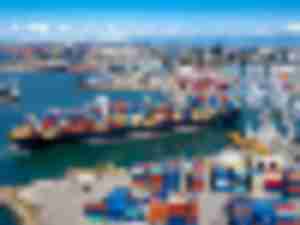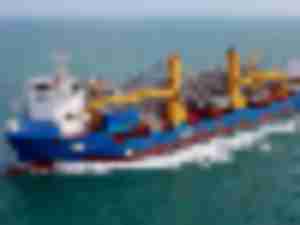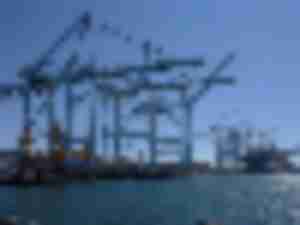Equipment procurement strategies become more innovative in 2021
As the turbulent economy of 2021 makes its way through the first quarter, businesses are experiencing uneven patterns of equipment investment demand depending on which market sectors they serve.
SEKO Logistics outlook: Expect global conditions to get worse
In a conference call with reporters on Feb 8th, Brian Bourke, chief growth officer at SEKO Logistics warned that the logistics situation globally “will get worse before it gets better.”
Port of Long Beach’s Cordero ‘not deterred by pandemic’
In his ‘State of the Port’ address, Mario Cordero, executive director, Port of Long Beach paid tribute to the men and women keeping the Port operational during the pandemic and demonstrating that the Port is “not deterred by the pandemic.”
Container crisis creating opportunity in the Multipurpose sector
You could call this the perfect storm but I’m sure major retailers and importers from Asia would have other choice words to describe the current situation in the container sector. The supply chain is currently experiencing severe disruptions.
PMA’s McKenna reports thirteen LA/LB ILWU workers have died from COVID-19
Jim McKenna, president of the Pacific Maritime Association (PMA), reported that the Ports of Los Angeles and Long Beach have seen the highest number of COVID cases among U.S. West Coast ports and that thirteen longshore workers have so far died.
Wan Describes Exceptional 2020 In State of the Port of Oakland Address
Port of Oakland Executive Director Danny Wan Describes Exceptional 2020 In State of the Port Address
Ports of Los Angeles and Long Beach urge California to fast track vaccines for dockworkers
Officials at the Ports of Los Angeles and Long Beach are urging California Governor Gavin Newsom to give priority to vaccinating longshore workers against the COVID virus so as to relieve congestion and delays at the two ports caused in part by a shortage of longshore workers who have been infected.
New Brexit-era regulations add “red tape” and confusion to EU-UK trade
While this could just be a case of early teething problems, logistics specialists and trade analysts fear it’s more likely a portent of the difficulties to come moving cargo to and from Britain.
Seroka reports Port of LA moved 9.2 million TEUS In 2020
Gene Seroka, executive director of the Port of Los Angeles reported that the Port moved 9.2 million twenty-foot containers (TEUs) in 2020
SSA’S Denike: Los Angeles and Long Beach congestion will last at least until March
Ed Denike, president SSA Containers, said that ocean carriers tell him that vessel congestion at the Ports of Los Angeles and Long Beach is likely to continue until March.
© Copyright 1999–2025 American Journal of Transportation. All Rights Reserved











